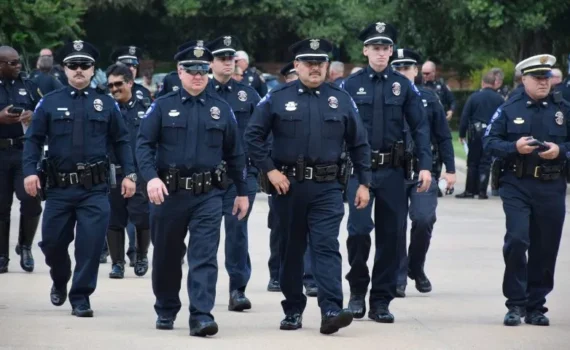Lying to Federal Agents: Legal Implications and Consequences Making false statements to federal agents can lead to serious legal repercussions. Under 18 U.S.C. § 1001, knowingly providing false information during investigations or interactions with federal authorities is a federal offense. Let’s explore the elements, penalties, and defenses related to this […]
Police
A police warning, whether verbal or written, is a formal way for a police officer to inform someone that they have violated the law while driving1. It usually involves a conversation with the officer, who will explain to the driver why they were pulled over1. General Rule. Does a Police […]
In the realm of traffic enforcement, the question of whether a police officer can pull you over the next day for a violation often arises. While generally permissible, exceptions exist, ranging from jurisdictional limitations to procedural deficiencies. Understanding these exceptions is crucial for navigating legal intricacies in traffic law enforcement. […]
In navigating highways, understanding who can pull you over is crucial for drivers. While law enforcement officers and highway patrol officers are well-known, other entities like transit police and private security also play roles in highway enforcement. Exploring their roles sheds light on the complexities of highway safety and regulation. […]
In contemporary society, the topic of intervening in police encounters has sparked significant debate, reflecting the delicate balance between respecting law enforcement authority and safeguarding individual rights. While there’s a moral imperative to prevent unjust harm, practical considerations and legal complexities often shape bystander responses. Understanding the nuances of when […]
Navigating encounters with law enforcement can be complex, especially concerning whether police can pull you over based solely on your youthful appearance. While general principles dictate that stops must be based on observable behavior or reasonable suspicion, exceptions exist. Understanding these nuances is crucial for safeguarding individual rights and promoting […]
In the realm of law enforcement and security, the act of handcuffing individuals carries significant legal and ethical implications. While handcuffing is often a necessary tool for maintaining public safety and enforcing the law, there are instances where its use can be deemed illegal and constitute a violation of individuals’ […]
In the realm of law enforcement, the expectation is that police officers possess a solid understanding of the laws they enforce. However, nuanced exceptions exist, reflecting the dynamic nature of policing. This exploration delves into various exceptions, shedding light on the intricate balance between accountability and the practical challenges faced […]
To start the process of getting a police report deleted, it’s essential to understand why you want it deleted and whether your reasons align with legal grounds for removal. Police reports are typically considered public records, and removing them can be challenging. However, there are situations where deletion is possible. […]
Navigating the delicate balance between civilian law enforcement and military jurisdiction is a nuanced endeavor. Understanding when a police officer can arrest a soldier involves exploring exceptions to the general rule. From federal crimes to martial law, this intricate landscape demands a careful examination of legal frameworks and collaborative efforts. […]









